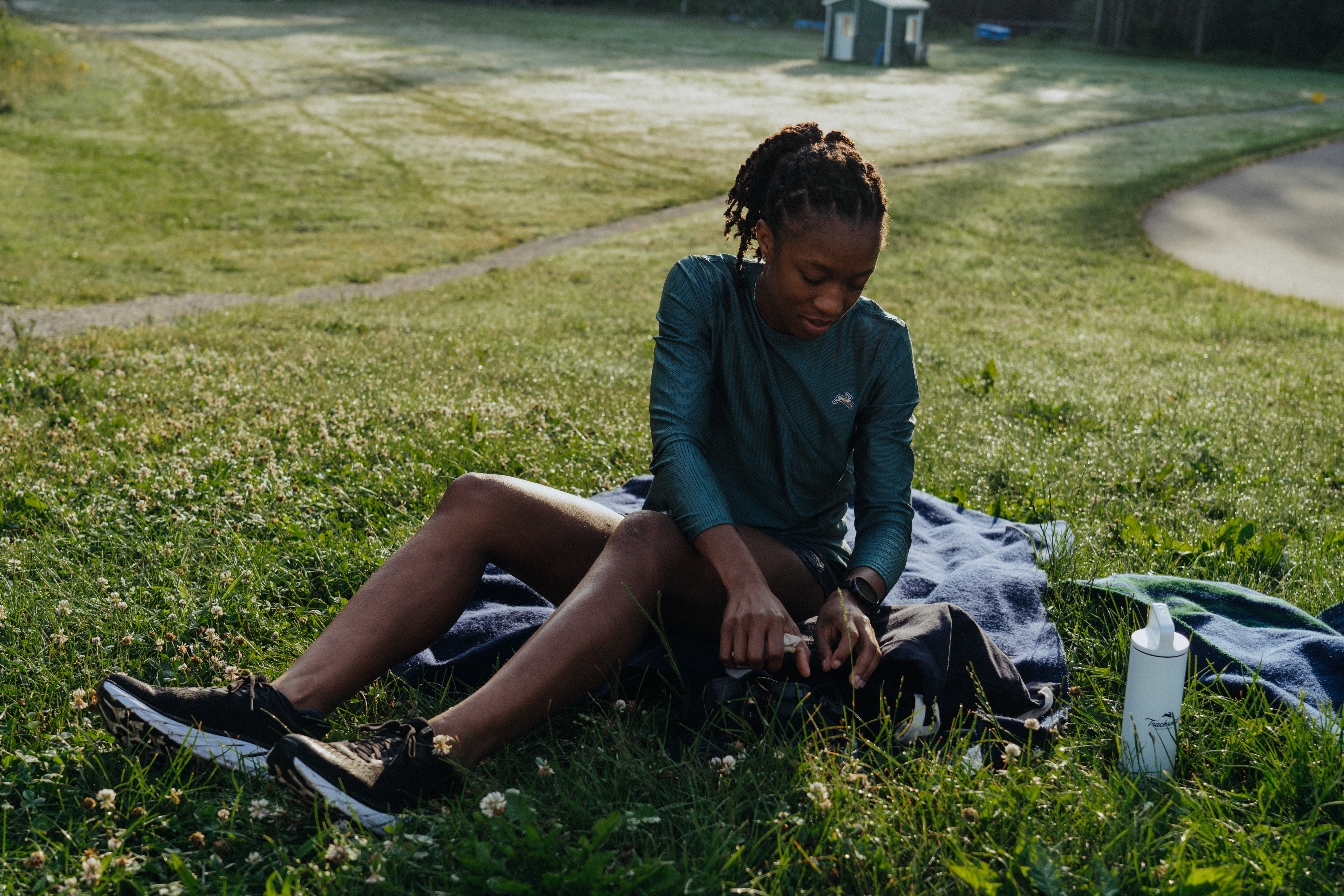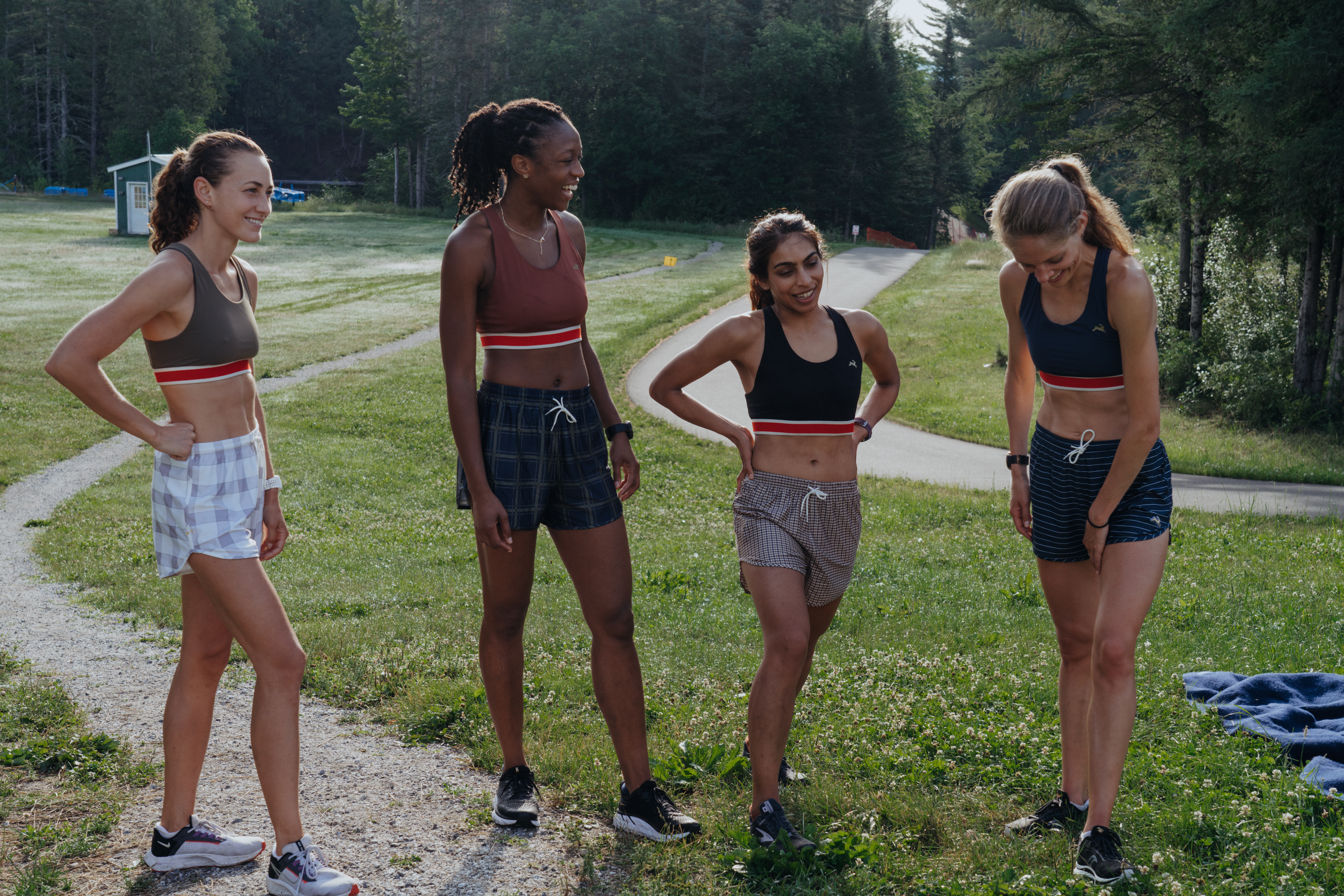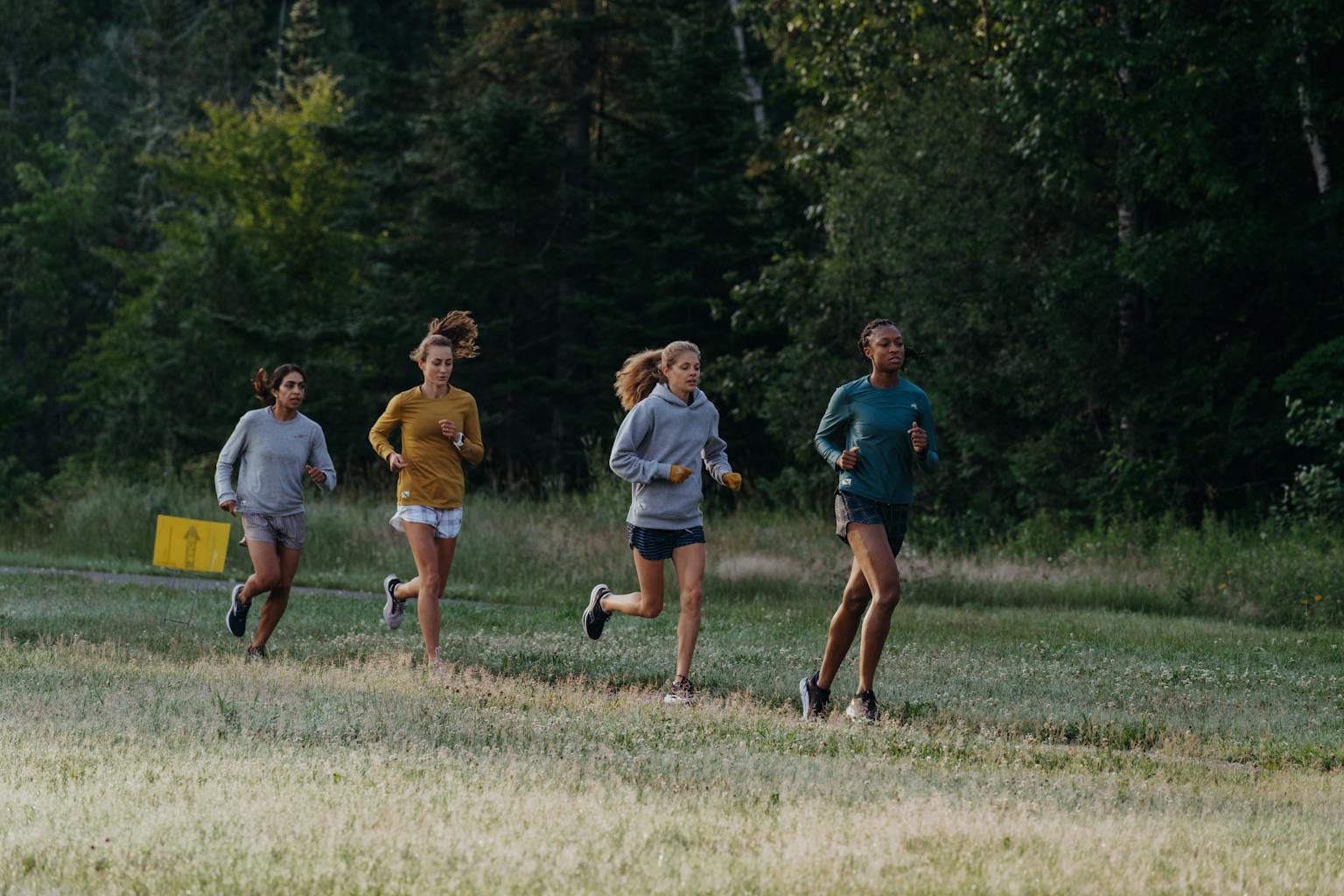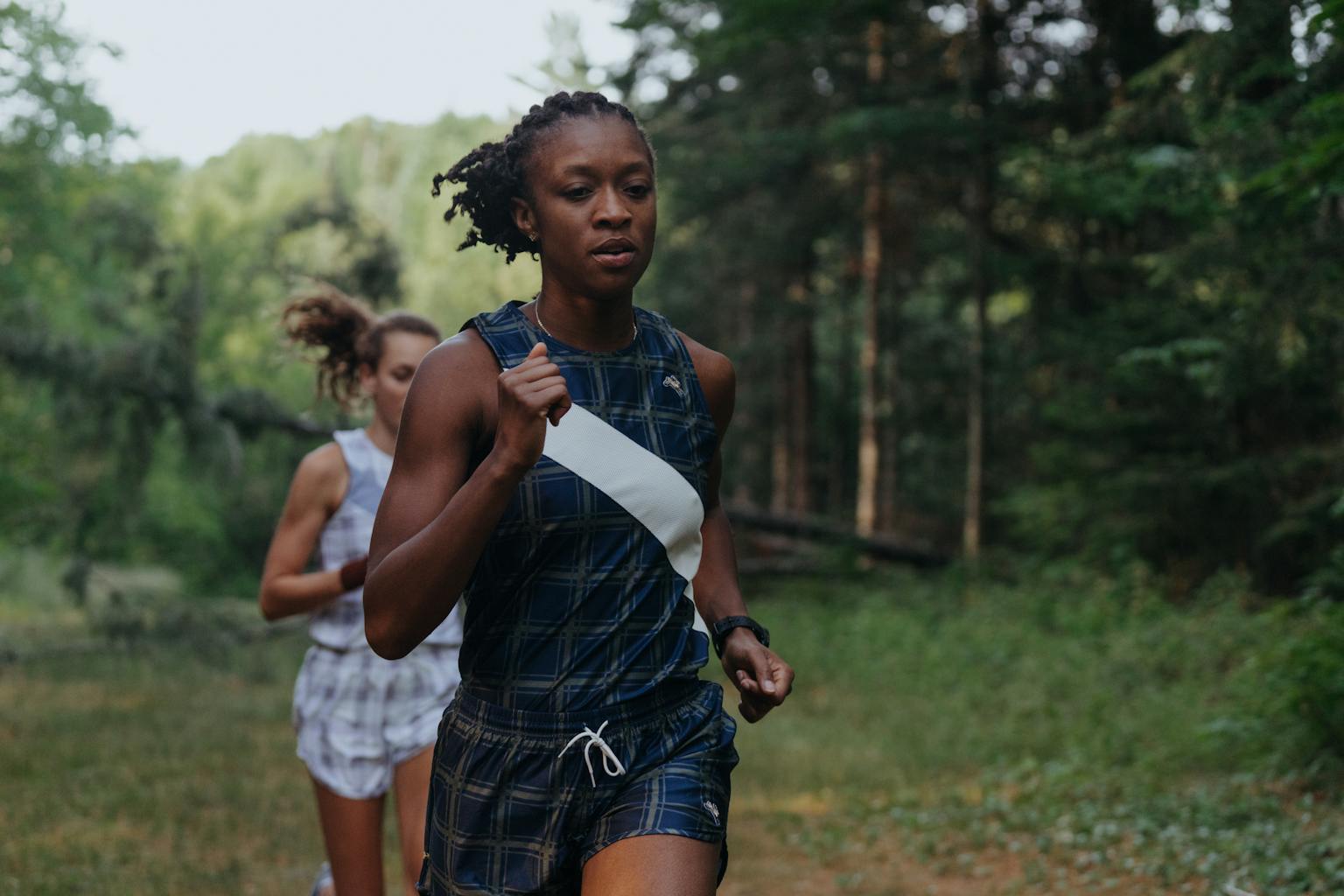It’s fair to say that in recent years, the popularity of women’s running has grown across all levels. While amateur women are participating in the sport, and fans of the sport are taking interest in and investing in following women at the elite level, the number of female head coaches in the NCAA for track and field and cross-country programs remains astonishingly low.
There are a lot of factors that contribute to this, many of which are tied to fostering the ongoing education of female athletes as they progress and eventually go into coaching, and the responsibility of coaches to create lifelong athletes beyond their own performance.
“It was only in 2017 that the United States Olympic Committee created a quality coaching framework to focus more on things like emotional intelligence, transformational leadership, and how we can relate to our athletes and engage with them in a different way to better support them,” says Brianna Welch, 30, a competitive middle-distance runner and owner of the consultancy, Coaching the Whole Athlete, which focuses on the interpersonal and intrapersonal skills required in coach development, and a former assistant track and cross-country coach at the University of Vermont. “It's really about answering this question of how as coaches, can we evolve our behaviors, our practices, and our relationship with our athletes to create a more supportive and empowering space for them to excel both on and off the field?”
Focusing on the whole athlete
Welch’s own experience as a collegiate runner at Duke University and then post collegiately shed a light on the social, emotional, and mental challenges that athletes often aren’t aware of how to work through. This, paired with her pursuing a degree in women’s studies, led to her wanting to be in a place where she could empower young women and allow them to have a voice and more agency in their development as athletes. “I wouldn't blame my coaches, but I just don't think they had the knowledge and the tools to be able to help us navigate a lot of things that are outside of just our running and that type of training, which impacts our performance as well, both on and off the track,” she says. “I really just wanted to still be in a space where I could help them just navigate this whole identity development stage because we all know when you’re 18 to 21, you're really figuring out who you are.”

Kenyetta Iyevbele, 30, an elite track and field runner and head track and field coach at the University of Delaware, echoed that sentiment, as she came into her coaching role originally working as an assistant coach with the sprinters due to her experience having run track and cross country at North Carolina State University. “I had to learn a lot that I didn't know before, trying to gain more knowledge and equip myself in a way that's going to allow me to be the best coach I could be in an event group that I had never really experienced before,” she says. “Honestly, the most exciting part of this role is the relationship part – I really love being out on the course with the girls and just seeing them develop and grow as athletes and as people, gaining maturity and getting confidence in who they are, especially being an all women's program. Our sport is very numbers-based, so I love getting to see that progression over time and how their growth in the sport kind of bleeds into other areas of their lives.”
“Kenyetta cares about us as people before athletes. That’s something I really appreciate and has helped to improve my relationship with sport,” says Jessica Pidgeon, one of Iyevbele’s current University of Delaware athletes. “I’ve struggled with feelings of failure and worried about disappointing my teammates/coaches, but Kenyetta not only listens and tries to understand the physical side of things, but is equally as attentive to the emotional side. She doesn’t make me feel bad about not being able to complete a workout my teammates are doing, and reminds me we’re doing the right thing for my body and, even though I might not always recognize it, making progress each day.”
Welch’s consulting focuses on what social awareness looks like in terms of reading an athlete’s cues and understanding when coaches need to be more compassionate or empathizing with their situation, then actually putting it into practice. This involves doing some role play in the workshops that allow them to feel safe trying out these coach/athlete conversations with a mock athlete.
"Being able to know, personally, what my athletes are going through and being able to guide them is an underestimated gift. They can see me not only as their leader, but a mentor,” says Megan Cooke Carcagno, head women's rowing coach at Duke University, a recent consulting client of Welch's. “Mentorship is incredibly important in sport, an environment where men outnumber women nearly 2-1 at every level. Seeing me do it is as powerful a motivator as hearing me say it can be done.”
“We talk about motivational theory and how to help our athletes become more self-determined, and a lot of what my personal work as a coach is and what I'm trying to teach others is this piece of autonomy,” Welch says. “If we want our athletes to really be engaged and invested and really love what they're doing, they have to have a voice and be seen in what they're doing.”
Acknowledging gender inequality
Welch, who is currently pregnant with her first child, acknowledged that she is likely to face some of the common challenges female coaches who are mothers commonly deal with, particularly when it comes to balancing their work and family lives, which is another factor that is likely to deter women from pursuing a demanding career like coaching. “I definitely have seen women in our program really needing to take time away for their kids,” she says. “[It’s true that] you're just able to say and do things differently as a male coach, and I'm not supporting certain behaviors like that, but it's just the response is different with women and it's a harsher response.”
Welch also noted learning the importance of being more assertive to pave their paths and build confidence, which she was able to do by having her athletes create training logs that didn’t necessarily have to do with running and instead focused more on building that confidence. “I think [speaking your mind is] just a huge piece of women making their way up and believing in themselves,” she says. “When I worked at UVM, the head coach was twice my age, but I always just was someone who spoke my mind and I was not willing to stay quiet. That's definitely a skill that needs to be taught and is difficult to be taught.”
Welch’s firm has also started to work with administrators, in everything from spending to going to the coaches' practices. “Something that we've focused on a lot in our programming that you don't really see is the self-care piece for coaches and coach well-being, but then also open up with this conversation about how the personal is professional,” Welch says. “You can't really compartmentalize the same way that we talk about treating the whole athlete. We have to treat the whole coach as well, and those values need to be trickled down from administrators.
“From the administrative perspective, this shows coaches that you're present, that you value them, that you're invested in them and really recognizing what's on their plate and becoming more knowledgeable about that,” she says. “This is something where there’s sort of a knowledge gap there between administrators and coaches and what the on-the-ground experience actually looks like, [which is often] 80 hours a week of coaching, being away from your families, being on call with athletes until 10 p.m.”

An emphasis on mentorship
Having come into her coaching role at such a young age, Iyevbele thinks it’s important to encourage girls to start thinking about pursuing athletics and possibly a coaching career at the high school level, pursuing local volunteer opportunities that may be available. “Just saying, ‘Hey, there's an opportunity for you guys to not only be an athlete, but if coaching is something you're interested in, maybe that's something you should look into too,’” she says. “I don't think we've had mentorship at those levels, so it would be cool to jumpstart that.”
"I feel so comfortable talking openly with [Kenyetta] about topics like periods and hormones—topics I could talk with my male coaches about, but wasn’t naturally inclined to, and when I did, never felt like they truly understood,” says Pidgeon. “Kenyetta understands these experiences on a personal level. She’s able to offer advice on how to listen to and respect our bodies as women athletes; if I’m having an off-day, we talk about why I might be feeling the way that I am and adjust to ensure I’m getting the most out of what I can do on that particular day.
Kenyetta also considers things male coaches don’t have to think about - like our safety as women runners. I remember one particular time when I had to practice early on my own before a full day of classes and it was going to be dark, and Kenyetta texted me the night before to check when and where I planned to run and also asked me to text her when I got back so she knew I was safe. This is something no coach had ever considered previously, even though I’d run before sunrise plenty of times before.”
Iyevbele nodded to her former coach and still-current NC State head track and field coach Laurie Henes as one of the female coaches who had a significant impact on her racing and coaching career trajectory. “[Henes] was a second mother to me in a lot of ways – I started talking to her when I was maybe 16 years old, so now being 30 years old and being on the other side and having her helping me be in a head coaching role has just been really cool and I’m just grateful to have gotten that mentorship,” she says. “It's really cool I now get to lead an all-women's program – there are just certain things you can connect with a female coach and a female athlete that a male coach just won't quite understand. It just takes the rapport to another level, to build the relationships and the trust that elevates and propels the athletes.”
“Usually when a head coach leaves the program, they clean the slate and bring in a new head coach and that head coach brings in their own assistant coaches,” Iyevbele says. “More [institutions] need to do a better job of having their coaches promote openings and outwardly say that they’re looking for a female coach and want more women in these roles.”
A lack of female coaches and a lack of diversity in the field certainly contribute to microaggressions that can occur to the few that are there, which Iyevbele has experienced first-hand. “When I go to meets, a lot of times I'll be in the vicinity of an official and they'll ask me, ‘Hey, I'm sorry, only head coaches are allowed in this area.’ And I'm like, ‘I am the head coach,’” she says. “That's happened more than once and being a female coach, especially being an African American coach, a lot of times we don't get that recognition or the value in being able to lead because it's such a new thing. As we continue to progress over the next few years and see more representation from female coaches leading programs, I believe that will become less common.”
Iyevbele noted that while it can be challenging to be expected to be a trailblazer in this regard, it’s ultimately character-building for her. “It's helping me a lot in my confidence and being optimistic about this sport growing from the female leading aspect,” she says. “In terms of getting more women to pursue coaching roles, being more outspoken about [what you and your team are doing], in a positive way, [would be helpful]. I see people developing, not just on the track, but I see my girls developing and leading in the community and being more vocal about it. It helps a lot just with promoting more women getting into the sport.”
In terms of building more representation among coaches, Iyevbele emphasized the need to not only invest in female coaches of color but to also promote the ones that do exist. “Putting that on the forefront saying, ‘Hey, this is the first female head coach we've ever had in the history of our school,’ and actually stating that will inspire other younger girls, and younger women who are coming up through high school and getting into the college level,” she says.

